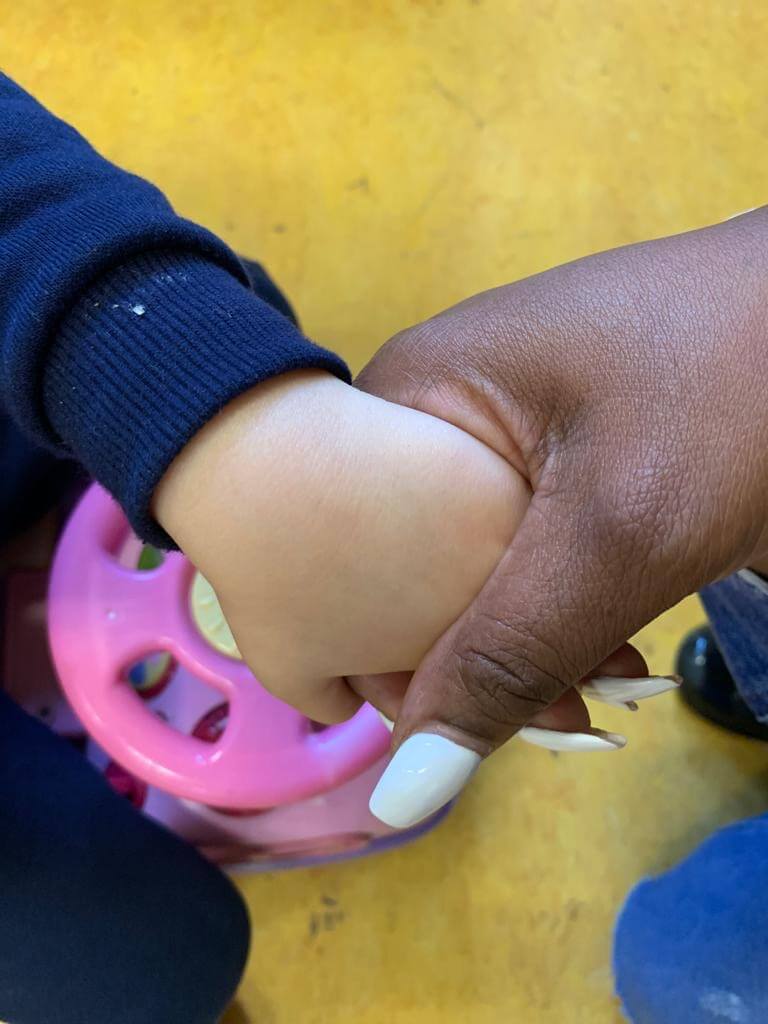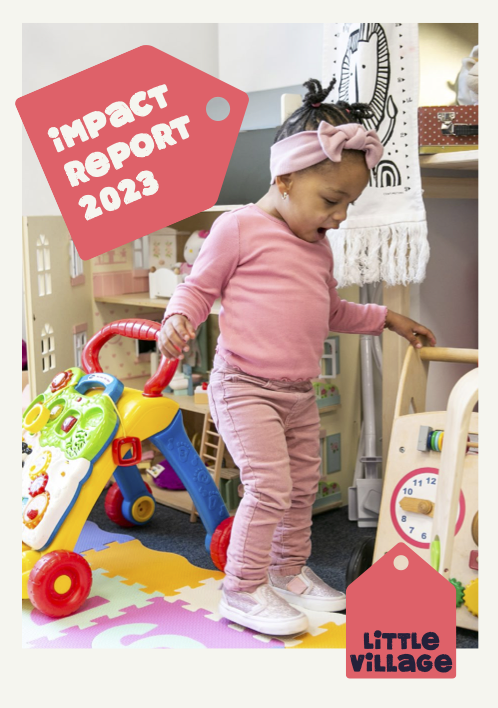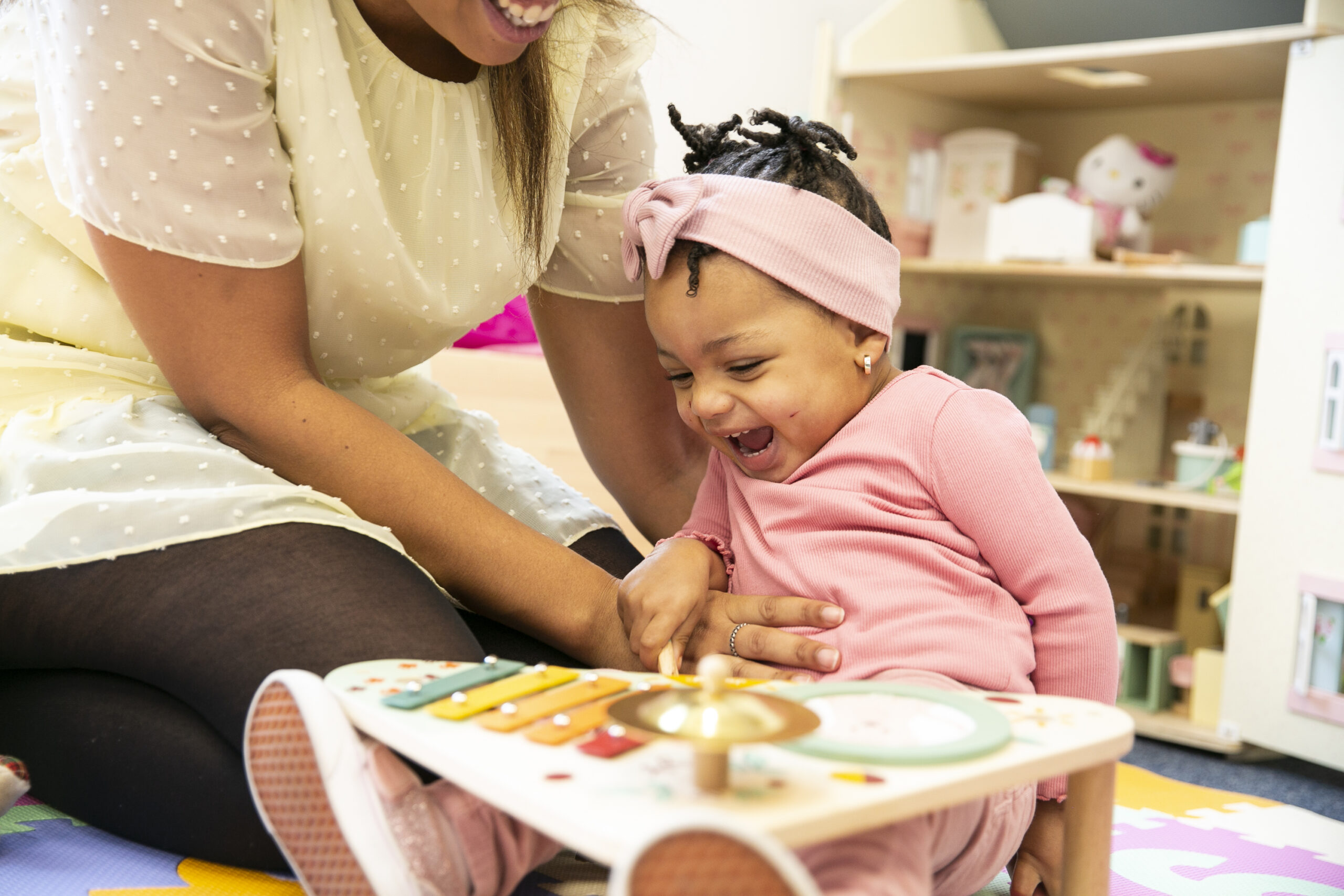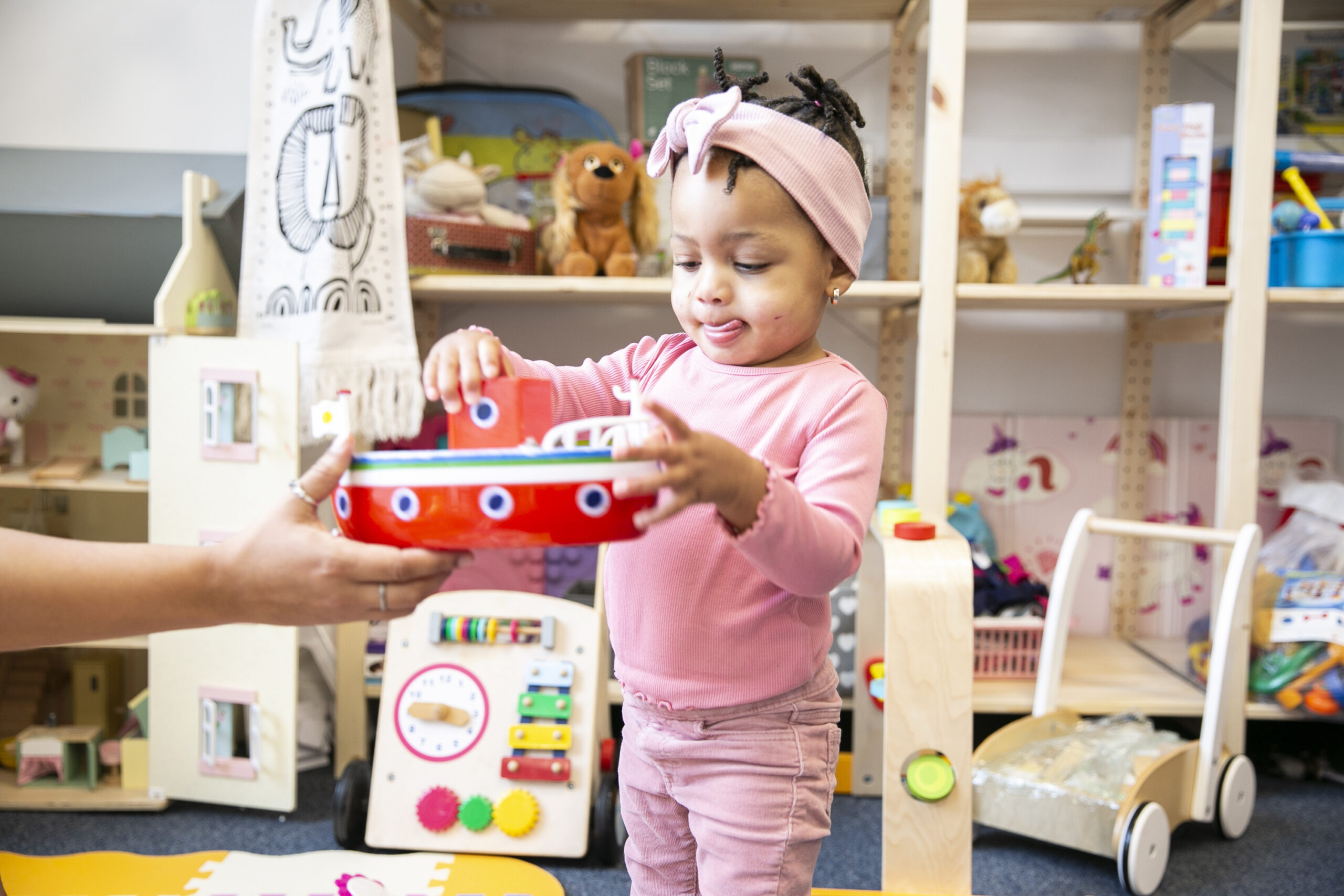Need help?
The Poverty Trap, and why so many families can’t get out

Published as part of London Challenge Poverty Week 2021.
by Sophia Moreau, Head of Advocacy and Communications at Little Village
In the Chancellor’s speech to the Conservative Party conference last week, he stated that the only sustainable route out of poverty comes from a good job. Unfortunately, state support doesn’t currently allow parents of young children to get there. At Little Village’s baby bank operations across London, we see various pathways to parents being pulled into poverty; mothers fleeing domestic violence, academics made redundant after furlough, families facing benefit sanctions, and more.
For the children and caregivers that we support, decisions like the Universal Credit cut are more than an abstract notion or a news debate. The £86 cut leaves families forced to choose between paying the heat bill and having a meal, all while fearing the bailiffs. Inadequate benefits, systemic underfunding of childcare, unaffordable housing and rocketing cost of living have resulted in children living in conditions where parents can’t even meet their basic needs let alone fulfill their potential.
We see the impact of poverty up close, as Little Village provides essential goods for under 5s such as beds, buggies, clothes, and nappies. Amongst the assortment of ‘avenues’ to poverty, a common theme is a whittled down social safety net and cuts to public services. Although we address material poverty, our aspiration is to eradicate child poverty and build a community where all children have the best start in life. This is an uphill challenge, as we now have 4.3 million children living in poverty in the UK, with 1.3 of them in London.
I recently spoke with a new graduate and single mother, Sarah*, who described how much of the first few years of her child’s life and their bonding time was consumed by the stress of child poverty.
“Things went downhill when my son’s dad was made redundant, which affected our relationship and we separated[…]. Sometimes I had to think, ‘what bill can I forego this month to make ends meet?’ It was quite a challenging task for me to be honest… When you’re in debt, you start acquiring more debt. Getting credit cards to make ends meet, closing accounts. It just kept piling and piling…I go to work for 15 hours, the childcare kind of cancels out the work that I’ve done[…] with Universal Credit, you have to have the money up front when you first sign your child up. Working at home at the time wasn’t in fashion. I had to go to work and I couldn’t afford to go to work[…] I felt so trapped really on Universal Credit[…] My son had allergies, so his formula cost £12[…] I live in a part of London where childcare is £80-90 a day.”
As Sarah spoke, describing an elaborate financial calculation every month to cover the bare necessities, I was struck by the mechanics of early years poverty. This combination of factors – the high cost of living and housing, unaffordable childcare, and inadequate benefits – is one we see often. Families like Sarah’s face the task of trying to
a) survive in a practical sense without enough money to meet your family’s basic needs,
b) manage the administration related to poverty, and
c) ensure that your baby has a good start in life.
By extension, the consequences of financial poverty include a poverty of time and energy, meaning children miss out on important quality time connecting and playing with their caregivers.
Childcare
The consequence of the Universal Credit system not being set up to pay childcare fees in advance is that countless parents are blocked from the workforce. They can’t access childcare because they can’t afford to pay it up front and wait until the end of the month to be reimbursed. Many of these parents are also skipping meals to provide for their children, and cutting back in various other ways, such as heating or electricity. One in ten childcare workers are in poverty themselves due to low wages, despite the high cost of childcare covered by parents.
While childcare is the infrastructure that allows parents, and particularly mothers, to enter or re-enter the workforce, we also know that the early years are crucial for enhancing life chances for children living in poverty. However, research conducted by the Sutton Trust and Sylvia Adams Charitable Trust recently found that 70% of families eligible for 30 free hours childcare for under 5s were high earners, whilst just 13% of families eligible for 30 free hours were low earners. We also know that there is an 11 month developmental gap between low and high income children by the time they reach primary school.
Housing
Many of the children Little Village supports are living in overcrowded accommodation or are homeless and in temporary or emergency accommodation. These are rarely ideal environments to raise children within and families are often left in such accommodation for several years. We ask our volunteers to select small toys when packing deliveries for families, to take account of the often single room a whole family is living in. We’re also often asked for rugs or playmats to give children a clean safe floor space to play and learn to crawl on.
The Poverty Premium
Poverty is an expensive predicament, both to the individual family unit and to the state. Moreover, the poor are effectively punished for being poor. The Fair by Design campaign has highlighted the ‘Poverty Premium’, which describes the extra costs that people on low incomes are forced to pay. This includes essentials like bills, high interest rates, and insurance that costs far more in deprived areas. For households in expensive cities such as London, this premium amounts to at least £780 per year.
Building back better for families
Just as we see countless families facing horrendous circumstances at Little Village, we also have the privilege of drawing on their expertise from their experiences and insights into early years poverty. We believe that early years poverty can be eradicated, and Little Village will be working alongside families to identify solutions.
Our early conclusions are that:
- The Universal Credit system needs reform, ranging from enabling parents to keep more of their earnings when they start work, to paying under 25s the same as other adults on Universal Credit. In Little Village’s 2021 report ‘It Takes a Village’, we outlined the demographics of poverty in under 5s. 52% of children in poverty have parents under the age of 25. We know that measures such as lifting the two-child benefit limit would be the most effective measure to the greatest number of children out of poverty, as the most economically disadvantaged families have 2+ children.
- Childcare is a public infrastructure investment, one with high returns due to the increased earning capacity of parents and the increased opportunities for children in high quality early years education. Free, universal childcare provided by qualified and well-paid staff, would make a significant impact on both child poverty and the motherhood penalty.
- The achievement gap between children from low- and high-income households could also be closed if all children have access to high quality early years education.
Surviving poverty can feel like the worst elements of an extreme sport. Many parents have had to develop the financial skills of an accountant just to cope with budgeting and they face impossible choices on a daily basis. We know that early childhood disadvantage has implications for all areas of development. This is exemplified by the fact that most adults in poverty were also born poor. This isn’t inevitable. The poverty trap is the product of a series of policy choices which sever support from the families who need it most. By investing in addressing the mechanics of poverty, we can build back better for families.
We already know that parental efforts to access employment and training opportunities are undermined by a creaky social security system. The cost of living rises with inflation, and with energy cost-hikes this year, it’s imperative that the financial support families receive is increased to match. Every time a family is evicted or falls into rent arrears, their ability to access future housing is drastically reduced. The poverty trap leads families with young children into debt, lost opportunities, and deteriorated mental health.
Share this
Latest News


